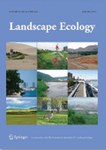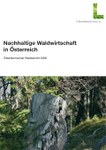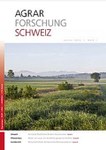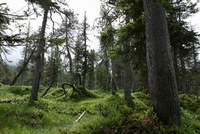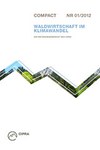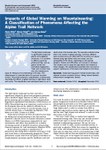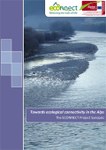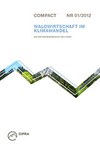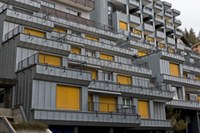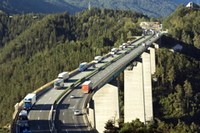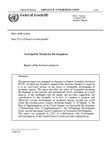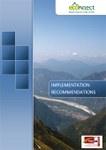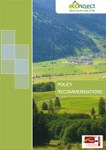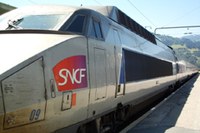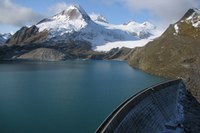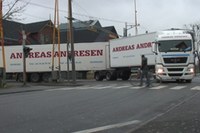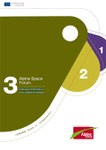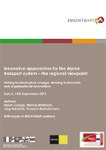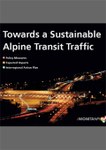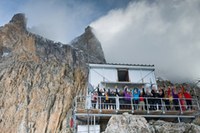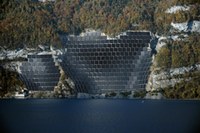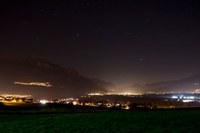Articles
Transnational ecological networks - history, status quo and potentials
The TransEcoNet Final Symposium presented in March 2012 the results of more than three years of project work. It provided an interdisciplinary view on transnational ecological networks in Central Europe and beyond. Read More…
Powering ahead towards carbon-neutral Alps
Emit no more greenhouse gases than the environment is capable of absorbing – that’s the vision the International Commission for the Protection of the Alps (CIPRA) is advocating for sustainable climate protection. In its Annual Report it highlights ways in which the Alps could become carbon-neutral and how people might be motivated to achieve that objective. Read More…
Healthy, natural forests: responding to climate change! cc.alps: CIPRA's demands for forest management
As forestry measures have long-term effects, adaptation of the forests to new climate conditions is urgently needed - but it should be initiated with great caution. The carbon storage ability of forests has to be exploited. Wood should first be used as a raw and building material; only under certain circumstances it should be used for heating. Short regional exploitation cycles are to be created. Natural forests should be fostered as they are more resilient to climate change. Forest owners who in the interest of climate protection give up part of their earnings should be compensated. Finally targeted research into practical climate adaptation measures has to become an important long-term task. Read More…
Swiss want to see fewer second homes
Most Swiss people have approved the "Stop the never-ending building of second homes" initiative, providing mountain communities with more protection for landscapes. But the building moratorium is not universally popular. Read More…
Alps overrun by traffic
Never before have such large quantities of goods been transported through Switzerland as in 2011. The title of "Transit Route Number 1", however, goes to the Brenner Pass. Read More…
Lyon-Turin: Environment Ministry gives bad marks
Criticism of the planned Lyon-Turin rail line is growing: environmental organisations have rejected the megaproject, as has the conservative UMP party in Savoy. The French Environment Ministry is now also expressing doubts. Read More…
CIPRA's point of view: Water on!
Austria's checklist for the building of hydroelectric power plants is technically sound, offering transparency for building permits, but no protection for ecologically intact waters. Read More…
Are XXL trucks coming to the Alps next?
The European Union is seeking advice on authorising "gigaliners". These 25-metre trucks are intended to promote climate protection - at the expense of rail transport and infrastructure. Read More…
CIPRA receives the Dutch Sustainability Award
In an on-line ballot, Dutch mountaineers voted CIPRA the 2012 Sustainability Organisation of the Year. This is the first time the Sustainability Award has been made by the Royal Dutch Mountaineering and Climbing Club. Read More…
CIPRA's point of view: An appeal for the mountains
Bigger, faster, further: not even the mountains are immune to this mantra of growth. CIPRA France is thus seeking visions for a sustainable future for both people and mountains. Read More…
Solar installations in Switzerland: innovative yet infuriating
Solar modules on ski lifts and mountain-slopes: the legacy of Fukushima and rising electricity prices mean that creative solutions are needed for power production. We offer a summary of Swiss megaprojects and world premieres. Read More…
Liechtenstein switches the lights out
The first state in the world to go dark: in January and February Liechtenstein is conducting experiments in bird protection, energy efficiency and public safety. Read More…
Improvements in efficiency instead of damage to the environment! cc.alps: CIPRA's demands on the subject of water
The rivers of the Alps provide 170 million people with water. Climate change will greatly reduce the availability of water in the Alps and beyond, with less rain, longer dry periods in summer and greatly reduced snowfalls in winter among the predicted consequences. The demands made of this natural resource will increase accordingly, as will competition between the various user groups. Today only about 10% of the rivers and streams of the Alps can be considered ecologically intact, i.e. they are neither polluted nor over-engineered nor compromised in terms of their flow regimes. The ecological quality of waterways and related habitats therefore calls for improvement, not further impairment. We cannot permit the last rivers to become engineered structures or depleted by the excessive abstraction of water. Read More…
